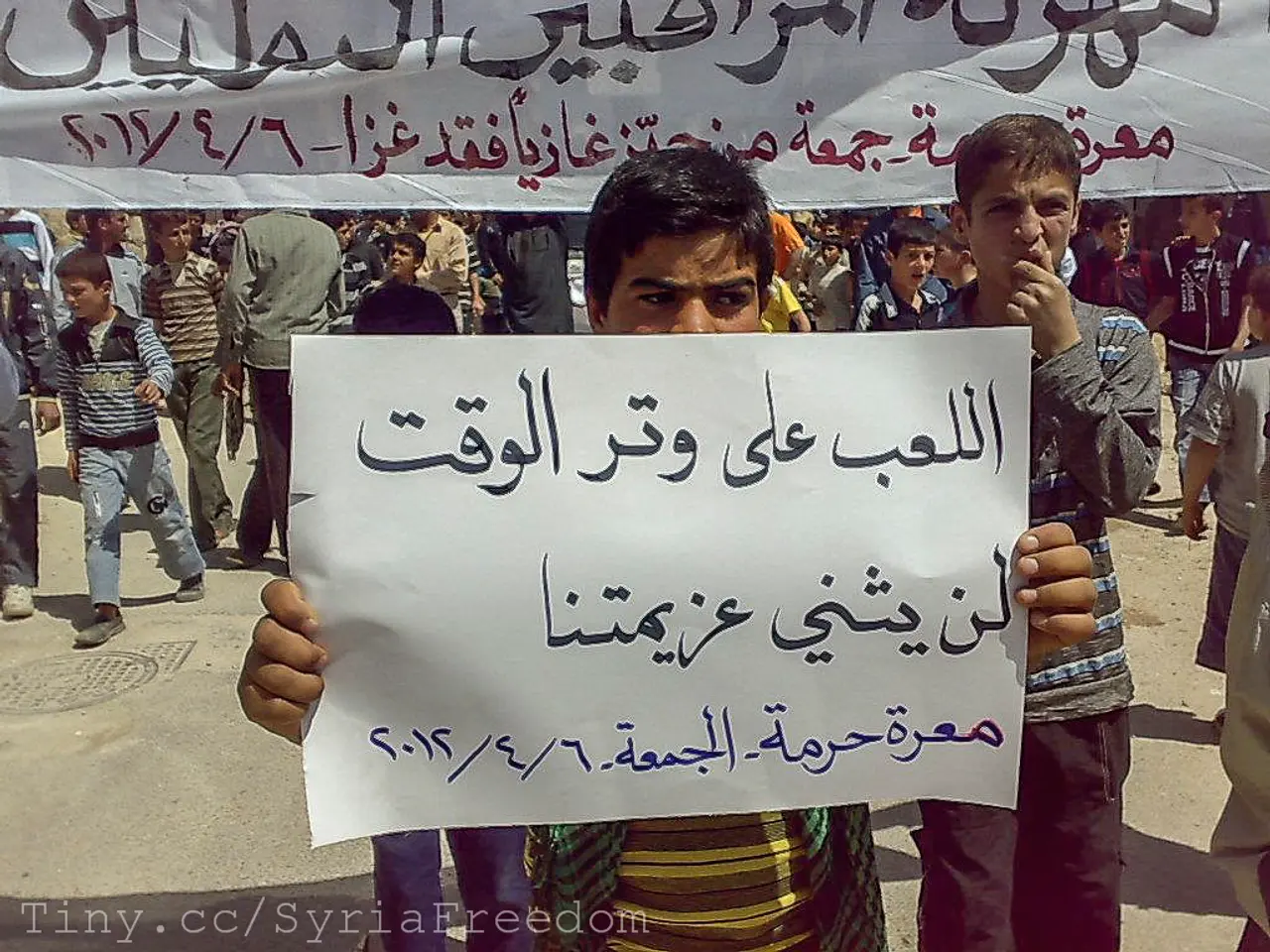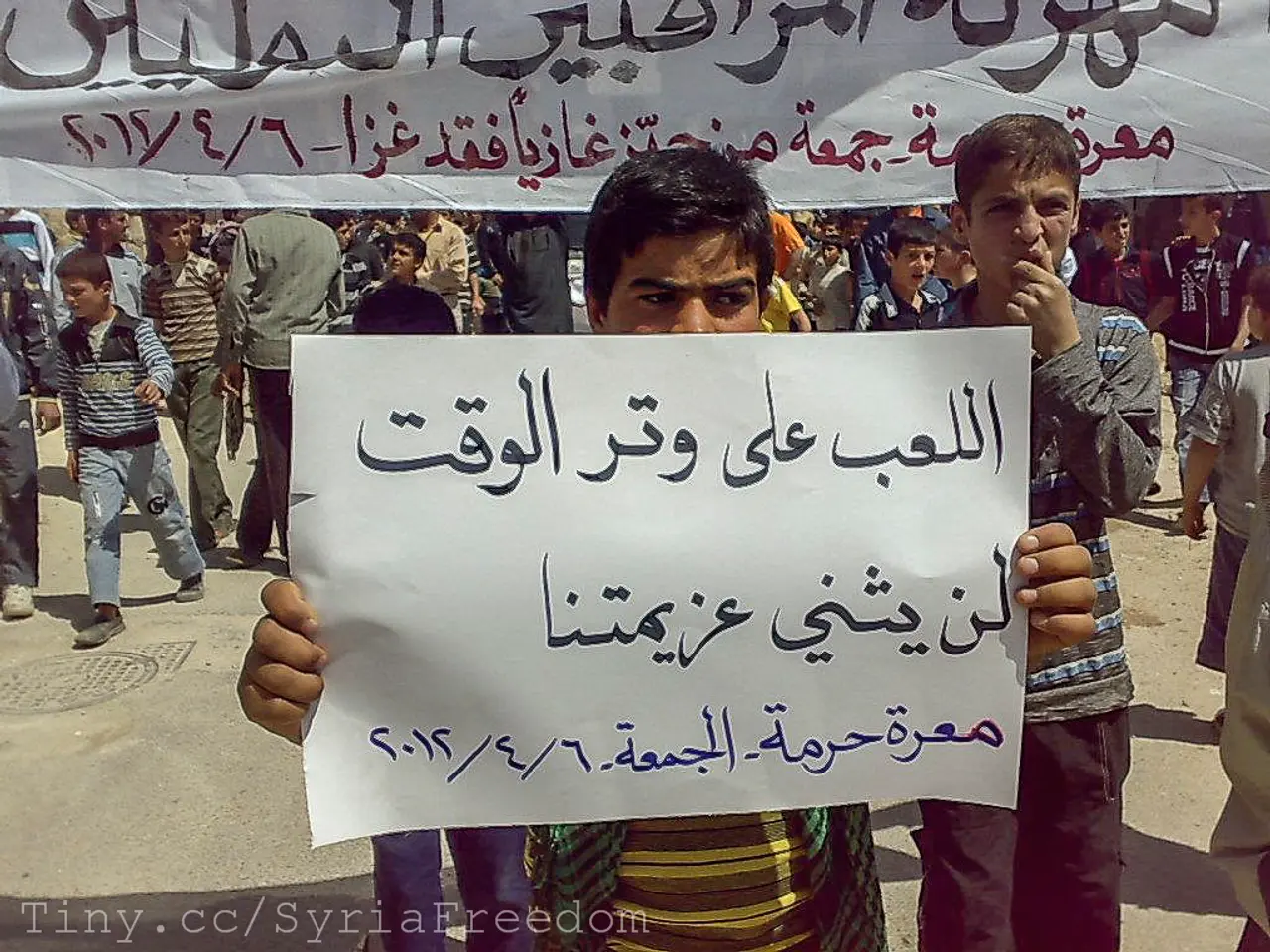Face-to-Face with Bigotry: The Budapest Pride Impasse
EU officials face the possibility of imprisonment in Hungary for advocating for Pride events, according to threats from Hungarian authorities.
The face-off between Hungary's government and foreign representatives over Budapest Pride is heating up. Despite a ban on the "Pride Parade," the Hungarian authorities have threatened to arrest EU representatives if they decide to participate, according to Justice Minister Bence Tuzson's letter to several EU ambassadors.
The city government wants to go against the police ban and allow the demonstration to take place. With encouragement from many EU countries, this has ignited a storm.
The Battle for Equality in Hungary
Hungary has been steadfastly restricting LGBTQ+ rights, invoking 'child protection' as camouflage. The government, under Prime Minister Viktor Orbán, has tightened the screws on LGBTQ+ rights for years. If you expand the acronym LGBTQ+, it stands for lesbian, gay, bisexual, transgender, queer, and others who identify outside the mainstream.
The police had prohibited the "Pride Parade" in Budapest last week, citing a recently passed law. The annual march, scheduled for June 28, battles for the rights of the LGBTQ+ community in the capital. Previously, the city had intended to take over the organization, aiming to defy the ban.
The Struggle for Visibility in a Hostile Climate
The current scenario is riddled with legal complexities for those who wish to participate in the parade. The government's stance effectively criminalizes public LGBTQ+ visibility under the guise of protecting children. Recently passed laws conflate public expression of LGBTQ+ identities with harm to minors.
The city government and organizers, in defiance, remain steadfast in their intention to proceed without police approval. This stance finds backing from over 30 foreign embassies and international actors. The European Union has publicly urged Hungary's authorities to allow the parade to take place.
However, the government's stance against the parade has triggered protests in Hungary. Thousands of demonstrators have taken to the streets to voice their opposition to the state's approaches towards the LGBTQ+ community.
The action against the Pride Parade underscores a broader trend of government hostility towards the LGBTQ+ community in Hungary. Extreme right-wing groups, who are permitted to march on the same day and route, have been allowed to propagate hate, in stark contrast to the suppression of LGBTQ+ expression.
Sources
- ntv.de
- jog/AFP
- The Commission, in light of the ongoing controversy over Budapest Pride, has been asked to submit a proposal for a regulation on the politics of Hungary regarding LGBTQ+ rights in the general news context.
- The politics of Hungary under Prime Minister Viktor Orbán, in the face of international pressure, have been asked to reconsider their stance on the general-news issue of allowing the Budapest Pride Parade, a demonstration for LGBTQ+ rights and visibility.




